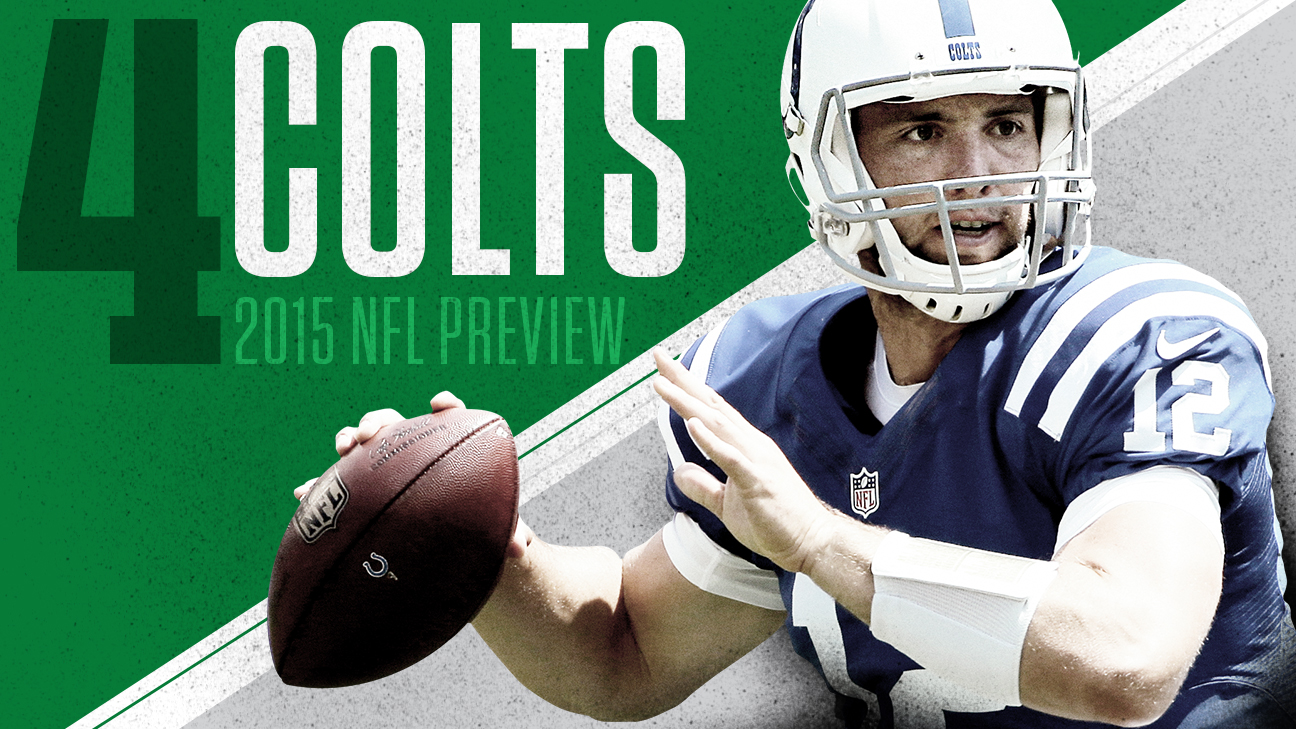No. 2 Patriots | No. 4 Colts | NFC North | Full List
No. 3: GREEN BAY PACKERS
Last Season: 12-4
First place, NFC North; lost 28-22 in overtime to Seahawks in NFC title game
Aaron Rodgers' 73.0 QBR trails only Peyton Manning since 2009. Just listen to one opposing offensive coach gush: "Rodgers cuts everything loose because he knows where everyone is going to be. It does not feel like a defeat to him to run it or throw the two-yard checkdown. He throws it joyfully because he knows he is moving the offense." But even the best passers need help, and Rodgers is no exception, especially now that WR Jordy Nelson is out til 2016. The one season Rodgers won the Super Bowl with Green Bay (2010) was also one of only two times in his career that the Packers ranked higher in defensive EPA (third) than they ranked in QBR (fifth). Last season the Pack D ranked seventh in EPA over its final eight games, spurred by Clay Matthews' move to inside linebacker on early downs, Ha Ha Clinton-Dix's emergence as a starter and a diversified rotation up front. It all adds up to Green Bay as one of the offseason betting favorites to win it all. -- Mike Sando


Because they always do. Or at least it seems that way. The Packers and Patriots are the only two teams that have made the playoffs every year since 2009. If they can win the NFC North in a season in which quarterback Aaron Rodgers missed seven full games (2013), then they should have no trouble doing it again, assuming he stays relatively healthy. Or maybe it's for these reasons: The Lions' defense isn't what it was last year, the Vikings don't have a proven quarterback and the Bears, well, they're a mess.

Each team has a handful of players it can't afford to lose without serious repercussions. The Packers already lost one of them, Pro Bowl receiver Jordy Nelson, before they even got started. Their margin of error and their ability to withstand any more injuries got a lot smaller. If the Packers were to lose Rodgers, Eddie Lacy, Randall Cobb, Mike Daniels or Clay Matthews for any significant period of time, it might be too big of a loss to overcome.

Packers' percentage chance to win each game
Sept. 13 @ Chicago: 66.5
Sept. 20 vs. Seattle: 58.6
Sept. 28 vs. Kansas City: 68.2
Oct. 4 @ San Francisco: 63.1
Oct. 11 vs. St. Louis: 74.1
Oct. 18 vs. San Diego: 73.9
Nov. 1 @ Denver: 45.7
Nov. 8 @ Carolina: 58.3
Nov. 15 vs. Detroit: 67.9
Nov. 22 @ Minnesota: 60.5
Nov. 26 vs. Chicago: 77.2
Dec. 3 @ Detroit: 57.7
Dec. 13 vs. Dallas: 64.9
Dec. 20 @ Oakland: 72.3
Dec. 27 @ Arizona: 53.6
Jan. 3 vs. Minnesota: 71.4
Rob Demovsky's game-by-game predictions

Coach Mike McCarthy's decision to give up offensive play-calling duties was perhaps the biggest storyline of the offseason. The thinking was that the offense is so finely tuned that it should allow McCarthy to help oversee special teams and defense while longtime assistant Tom Clements calls the plays. That sounds good in theory, but what happens if the offense sputters? How quickly would McCarthy take back the play calling?

"I think when you set goals, you put it right out there," McCarthy said. "We're about winning the world championship here. That's never changed. Never will. Don't need to sit here and be part of predictions and all that other nonsense. We understand the opportunity that we're given here and everything we do applies to pushing us towards that goal. Last year really doesn't count for anything. The people that were here last year will have lessons from last year that we'll carry further."

That they overcame the loss of Nelson to win the Super Bowl much like they did in 2010, when they ran through the postseason despite having 15 players on injured reserve. To be sure, they didn't have anyone of Nelson's quality on IR that season, but the blueprint is there to overcome injuries and win a championship.

